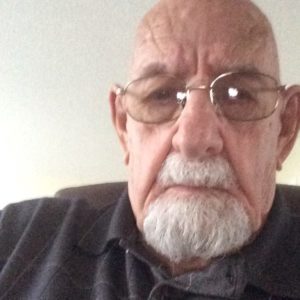The Liberation of a Buchenwald Surragate Death Camp , by Paul Duber

In early April 1945, I was given a mission to take a town after had taken others after the Battle of the Rhine. That morning my platoon took off on that mission as usual, following a road that would lead us that town. Two scouts ahead followed well back by myself, Sgt. Norman Raucher, and Pfc. Brown, my radio messenger, then the rest of the platoon. Suddenly, an ugly smell filled the air. One of our scouts ran back to me worried it might be lithel. It smelled like sulphur which I remembered from my chemistry [class] in school. However the further we marched, the denser the smell.
A little further along there was small arm fire coming from ahead of us, out of a wooded area that ran along side the road. By recognizing their uniforms, [we knew] the fire was from SS troopers. After engaging them with heavier weapons they fled, but the smell did not. Back to marching towards our mission we [came] across a [railroad] Crossing and the source of the smell. Not very far hidden in the woods were three open railroad cars loaded with emaciated dead, both men and women. The stench [was] so strong we had to wear our gas masks. Back to our mission we marched about 300 yards and upon a very noisy wooden fenced encampment topped with bobbed wire . Those internees were trying to open a gate by pushing it out when the gate opened in. Shouting at them in Yiddish, we finally had them move from the gate and we pushed ourselves in. Only four of us remained inside while the rest of the platoon stayed outside to protect the perimeter from possible attack. When the population settled down, I was able to contact my Battalion’s leaders to make [them] aware of why we deterred from our mission. I was to stay put and they would be arriving shortly to relieve us. Meanwhile, I found a man, interned on a visit to Germany from the U.S., who was able to become our guide. We were able to see the entire [camp] from it’s headquarters, the infirmary (still full with infirm), the three tiered barracks bedded with lice filled straw, the gas chamber, the two gigantic ovens and just outside a pile of shoes from the deceased and a greater pile of ashes.
It was a few hours before an entourage descended upon the camp, from the high ranked, reporters, etc. After a brief report to my superiors, we were sent on our way to complete our mission with no resistance.
Of all the battles experienced, this experience of what I saw and what the internees divulged will always linger in my mind of what my people endured.